Directors say inpatient program at Saint Francis Health is one of the longest-running in the nation
By LISA EISENHAUER
Jenn Fabian traces the start of her eating disorder to the Christmas holiday break of her senior year of college, when she decided to join her parents on the Weight Watchers diet plan so she could slim down a bit before her summer wedding.

Fabian
By the time she went home for Easter break, she had dropped 40 pounds from her 6-foot frame. "My parents were like, 'Oh, my gosh. What is going on?'" Fabian recalls.
That was in 2005. Fabian's mother moved back to college with her to help her graduate. The engagement broke off. For the next six years, she struggled with her eating patterns. She went to counselors and dietitians, getting help but never conquering her
mental struggle with food.
"I was better at hiding my compulsive behaviors and had people thinking that I was doing better," she says. "I put on enough weight to keep my parents off my back but was nowhere near where I should be."
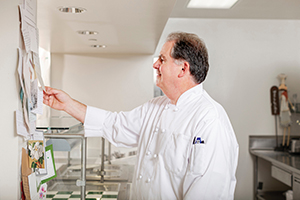
Jeffrey "Buck" Townes, a chef and licensed therapist who supervises food and nutrition in the eating disorders program at the Laureate Psychiatric Clinic and Hospital in Tulsa, Oklahoma, looks over thank-you notes to the kitchen staff from patients.
The hospital is part of the Saint Francis Health System.
Not until a particularly miserable Christmas in 2011, when the stress of being surrounded by people and food overwhelmed her, did Fabian decide on inpatient treatment. A few weeks later, she checked herself in to the eating disorders program at the Laureate
Psychiatric Clinic and Hospital in Tulsa, Oklahoma. The hospital, part of the Saint Francis Health System, is just two hours from Fabian's home in Norman, Oklahoma.
"I've been in recovery for 10 years," says Fabian, now 39. "My first day of recovery I consider to be the day that I checked into Laureate. That was February second of 2012."
Comprehensive care
In addition to the adult program that Fabian entered, Laureate has a separate track for adolescents battling eating disorders. Each track includes acute, residential and partial hospital care. Patients receive
whatever medical care is needed to stabilize their health along with psychotherapy, medication management and nutrition therapy services. Their therapist, primary physician and dietitian stay the same during their entire inpatient stay at Laureate
to ensure continuity of care.
The directors say the Laureate Eating Disorders Program, established in 1989, is one of the oldest inpatient ones in the nation and one of only a few run by a not-for-profit health care system. The program can have 18 adult and 15 adolescent inpatients
at any given time and up to six young women at Magnolia House, a transitional living center. Inpatient care is exclusively for girls and women, or those who identify as female. The average length of stay is 70-75 days.
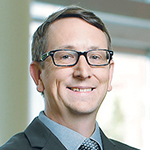
Moseman
Outpatient treatment is open to women and men, irrespective of age, although Dr. Scott Moseman, medical director of the Laureate Eating Disorders Program, says most of those patients tend to be girls and young women. The patient population is reflective
of statistics that show eating disorders are much more common among young females than other demographic groups. Moseman notes, however, that the gender gap in eating disorders has closed somewhat in recent years.
Women who complete the intensive inpatient program can ease back into daily life as residents of Magnolia House, also on the 47-acre Laureate campus. Outpatient care is available for patients who complete the inpatient program and for those who do not
require inpatient care.
Eating disorders are illnesses with considerable morbidity and mortality and most health insurance covers the inpatient and outpatient treatment at Laureate, although the extent of coverage varies.
Pandemic increases need
Heather Binkley Morrow is outreach manager for the clinic and hospital. Part of her job is to market the eating disorders program, which she says hasn't been a challenge since the start of the COVID-19 pandemic.
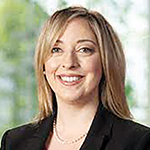
Morrow
"Pre-pandemic we needed to reach out to our community partners more frequently to keep our beds full," Morrow says. During the pandemic, the call volume for referrals has increased 108%. "People are really suffering," she says.
In mid-March, Laureate had a waiting list of about six weeks for adults and four weeks for adolescents seeking inpatient care for eating disorders.
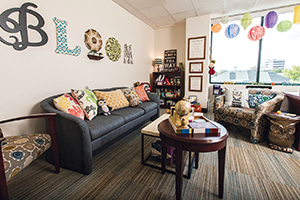
The office of a therapist in the eating disorders program at the Laureate Psychiatric Clinic and Hospital in Tulsa, Oklahoma, has cheery home-like décor.
Tulsa is not an outlier in experiencing a spike in demand for acute care for eating disorders during the pandemic. The Centers for Disease Control and Prevention reported in February that weekly visits to emergency departments for eating disorders among girls ages 12-17 doubled during the pandemic as compared to 2019.
The National Eating Disorders Association says its help line had a 107% increase in contacts from March 2020 through December 2021.
The association notes that eating disorders have one of the highest mortality rates of any mental illness in the United States with one person dying every 52 minutes as a direct result.
Stress and isolation
Morrow partly attributes the spike in demand for eating disorder care to the added stress brought on by the pandemic. "You have a person whose brain is not very resilient to begin with and then you put all
of the factors of the pandemic on top of that, it's going to exacerbate those tendencies and how they self-treat their anxiety," she says.
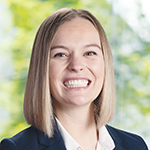
Branz
Lauren Branz, an outreach coordinator and counselor in training with the eating disorders program, adds: "Something that a lot of our adult patients talk about is that they've felt so isolated from their community and even their faith community and
that allowed their eating disorder to take over in a way that maybe it hadn't in the past."
Multidisciplinary care
Moseman, who is working with Dr. Sahib Khalsa at the Laureate Institute for Brain Research studying the neurobiologic underpinnings of eating disorders, conceptualizes eating disorder as a brain stress
resiliency issue. This could be understood by the lay public as stress and anxiety disorders. The Anxiety and Depression Association of America says eating disorders commonly co-occur with anxiety disorders, with issues such as obsessive compulsive disorder impacting over a third of young women with anorexia nervosa.
The more common forms of eating disorders are anorexia nervosa, bulimia and binge eating — any one of which can lead to nutritional issues and serious, even irreversible or deadly physical maladies.
Although Laureate's program has a closed "self-contained" panel of doctors, nurses and therapists solely focused on eating disorder patients, the program takes advantage of the full compendium of services available at Saint Francis Health System in
order to better take care of patients, with specialty services that investigate gastrointestinal and bone related complications being more commonly utilized.
"For eating disorders, when you don't eat well it affects every organ system and every system in the body and so we have specialists in internal medicine and pediatrics who we can consult and work together with to treat the whole person," says Moseman,
who has been with Laureate for 17 years.
'A very difficult illness'
The eating disorders program attracts patients of all ages and from across the nation and around the world. Some of them have been through multiple treatment programs. While the adult inpatient population
at Laureate tends to skew young, women in their 50s sometimes seek out the program. Morrow says those older patients are likely to have been dealing with eating disorders since they were much younger and have developed a more recalcitrant form
of the illness.
"Many times, we see that (the disorders) have probably been there all along and maybe they're just now recognizing it or able to get treatment for it," she says. "It's a very difficult illness."
In addition to providing physical, mental and nutritional services for patients, Laureate includes extensive family therapy and educational sessions so that loved ones can understand the disorder and how to help support patients in their recovery.
Those sessions are available both in-person and virtually. Each month the center also hosts a week of events for patients' relatives at which staff members lead discussions and recovered patients share their experiences.
As part of her ongoing recovery and to show her gratitude for her turnaround, Fabian is a "recovery speaker" for the eating disorders program. She shares her story about how her Laureate counselor diagnosed her with obsession compulsive disorder and,
working with doctors and dieticians, helped Fabian find a medication and eating plan that worked for her.
She says she got a new start during her 90 days at Laureate. "It was a life-changing experience for sure," Fabian says.
Part of eating disorder therapy centers on developing a healthy view of food, diet
Since proper nourishment is a huge part of recovery, much of the therapy in the Laureate Eating Disorders Program involves instilling a healthy approach to food and diet. Dietitians create individualized meal plans for patients, who eat six
times a day.
Patients who adhere to special diets, be they kosher, halal or vegetarian, get an appropriate meal plan. The program has a dedicated chef, who oversees the preparation of the food on each patient's meal plan. None of the food is prepackaged.
Care providers attend the meals. Dr. Scott Moseman, the program's medical director, says the idea is for meals to be therapeutic, with patients feeling supported as they nourish their bodies in a model which is known as "all foods fit."
The overall goal of care for all patients, Moseman says, is "to treat them in a way which is developmentally appropriate so we can pass them off into a place where their eating doesn't get in the way of their day-to-day life."
— LISA EISENHAUER